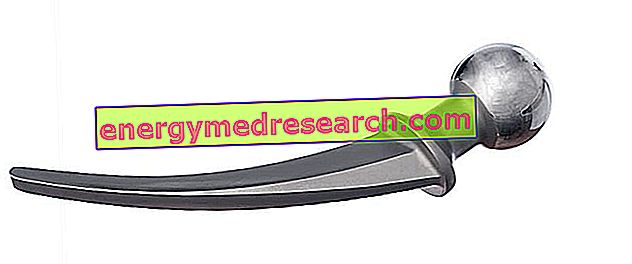ALLURIT ® is an allopurinol based drug
THERAPEUTIC GROUP: Anti-gout - Xanthine oxidase inhibitors
IndicationsAction mechanismStudies and clinical effectiveness Usage and dosage instructionsWarnings Pregnancy and lactationInteractionsContraindicationsUndesirable effects
Indications ALLURIT ® Allopurinol
ALLURIT ® is used in the prophylaxis and treatment of hyperuricemia and its pathological consequences, such as gout and urinary lithiasis.
ALLURIT ® is also indicated for the treatment of hyperuricemia induced by cancer chemotherapy.
Mechanism of action ALLURIT ® Allopurinol
Allopurinol, the active ingredient of ALLURIT ® and currently the first line therapeutic agent for the treatment of hyperuricemia and gout, is a molecule chemically similar to hypoxanthine, capable of blocking upstream the metabolic pathway responsible for the synthesis of urates.
In fact its pharmacodynamic characteristics allow allopurinol, competing with xanthine and hypoxanthine, to act as a substrate of xanthine oxidase, blocking the redox reactions that generally lead to the synthesis of uric acid.
The therapeutic action of the aforementioned active principle is also carried out indirectly by promoting a further reduction of the natural substrate of xanthine oxidase, thus committing xanthine and hypoxanthine to the de novo synthesis of purines.
Recent studies have also ascertained the ability of allopurinol to reduce the production of reactive oxygen species, protecting the heart and vessels from the oxidative insult exercised by the aforementioned molecules and significantly preventing the development of cardiovascular pathologies.
The high efficacy of this drug is also supported by the advantageous pharmacokinetic properties, which allow allopurinol taken orally to quickly reach blood concentrations endowed with therapeutic activity.
Studies carried out and clinical efficacy
1.ALLOPURINOL AND DIABETIC NEPHROPATHY
Iran J Kidney Dis. 2010 Apr; 4 (2): 128-32.
Study demonstrating how low doses of allopurinol can reduce the severity of proteinuria in patients with type II diabetes. This important evidence could suggest the use of allopurinol as a useful adjuvant to therapy for patients with diabetic nephropathy.
2. THE NEW THERAPEUTIC INDICATIONS OF ALLOPURINOL
Drugs Today (Barc). 2009 May; 45 (5): 363-78.
Study that evaluates the possibility of extending the therapeutic indications of allopurinol even beyond hyperuricemia and gout. Metabolic syndrome, chronic renal failure and non-alcoholic hepatic steatosis, appear to be potential therapeutic targets of allopurinol, given the antioxidant role of this active ingredient.
3.CASE REPORT: DRESS ALLOPURINOL SYNDROME
Pediatr Dermatol. 2010 May-Jun; 27 (3): 270-3. Epub 2009 Oct 4.
First case report that reports the onset of a severe eosinophilic-mediated anaphylactic reaction to allopurinol in a young patient (16 years old). Remission of symptoms was guaranteed by the administration of methylprednisolone.
Method of use and dosage
ALLURIT ®
150 mg tablets or 300 mg allopurinol effervescent granules.
The recommended dosage regimen for the treatment of hyperuricemia and gout involves the gradual intake of allopurinol, starting with the lowest possible dosage up to the definition of the optimal dose able to keep the concentration of uric acid constant and balanced.
Despite a very wide range, between 100 and 800 mg daily, the most used dose is 300 mg daily.
It is recommended to take ALLURIT ® every day after meals, and preferably at the same time, always under the medical indication.
Warnings ALLURIT ® Allopurinol
Note the ability of allopurinol in the initial stages of treatment, to increase the incidence of acute gout episodes, it is advisable to also take colchicine or non-steroidal anti-inflammatory drugs in this period in order to prevent the inflammatory and painful symptoms mainly concentrated on the joint level .
Patients suffering from nephropathy or liver disease should be monitored periodically by their doctor, in order to promptly identify the possible presence of side effects associated with allopurinol therapy.
All treatment should therefore be accompanied by an increase in water intake, in order to facilitate the excretion of uric acid and allopurinol catabolites, avoiding problematic consequences related to accumulation.
Taking allopurinol could reduce the cognitive abilities of the patient, making it dangerous to use machinery or driving vehicles.
ALLURIT ® effervescent granulate, contains lactose, therefore its use is not recommended in patients suffering from lactose intolerance, glucose-galactose malabsorption or lactase enzyme deficiency.
PREGNANCY AND BREASTFEEDING
We do not recommend taking ALLURIT ® during pregnancy and during the subsequent breastfeeding period, given the lack of studies concerning the safety of allopurinol for the health of the unborn child and of the infant.
Interactions
Various pharmacokinetic studies have attempted to characterize all the possible drug interactions present between allopurinol and other active ingredients.
At the moment the most clinically relevant ones are:
- ACE inhibitors, Amoxicillin, Ampicillin, Antivirals, cytotoxic drugs, Theophylline and Cyclosporine for which an increase in the toxicity of the drugs used was observed;
- Oral anticoagulants such as warfarin, whose simultaneous use significantly increases the risk of bleeding;
- Uricotelici, capable of increasing the renal clearance of both allopurinol and its active metabolite oxipurinol, significantly reducing its therapeutic effect.
ALLURIT ® Allopurinol Contraindications
The use of ALLURIT ® is contraindicated in patients who are hypersensitive to the active ingredient or to one of its excipients, and as a pharmacological treatment of the acute gout episode.
Undesirable effects - Side effects
Although taking ALLURIT ® is generally well tolerated, an increased incidence of side effects, in some cases even clinically relevant, has been observed in predisposed patients such as for nephropaths.
Hypersensitivity reactions with skin rash, fever, skin exfoliation and vasculitis, gastrointestinal disorders, asthenia, malaise, vertigo, drowsiness, changes in vision and taste, hypertension, alopecia, hepatotoxicity, paresthesia and neuropathies, gynecomastia and haematological disorders, were the more frequently documented adverse reactions, for which the drug was rarely stopped.
Note
ALLURIT ® can be sold exclusively with a medical prescription.



